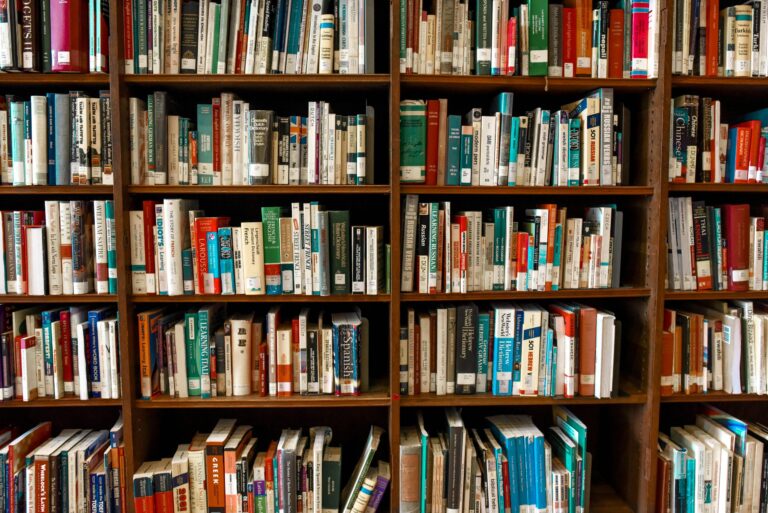I grew up in the Larimer Avenue district of East Liberty, Pittsburgh, in a first-generation Italian American family. We were poor, and books were a luxury we did not have. Yet every day, my grandfather Pasquale read the Italian-language newspaper.
He had taught himself to read Italian while working in the orchards of Lazio, Italy. When he came to America—before the nativist immigration laws of 1924 banned Italians, Jews and other “undesirables” from Southern Europe—he taught himself English the same way: by reading the newspaper. Reading was the key to his success.
A growing-up nourished by books
Though our house had no books, two blocks away stood a Carnegie Public Library, “free to the public,” the second largest in Pittsburgh. That library was my sanctuary. Within its walls, I sailed with Sinbad, trekked with Marco Polo, and got lost among the hieroglyphs of ancient Egypt. The library opened worlds beyond the narrow streets of my neighborhood.
Later, at seminary, I became assistant to the priest librarian and gained access to the Index Librorum Prohibitorum, the Catholic Church’s list of forbidden books. For four years, I secretly read them all—Marx, Engels, Freud, the Marquis de Sade. It was an education in freedom: the dangerous freedom to think for myself. By 1966, when I left the seminary for the University of Chicago, the Church had finally abolished the index.
Books introduced me to Islam, Buddhism and a dazzling range of cultures and histories. They taught me to recognize and respect lives and values far different from my own. My love of books is not theoretical; it is rooted in lived experience. I know how powerful they are to educate, liberate and transform. That is why I take any effort to restrict access to them as a serious threat—not only to individual minds but to democracy itself.
The new wave of book bans
Since 2021, more than 16,000 schoolbook bans have been recorded across the United States. In the 2023–24 school year alone, over 4,000 unique titles were banned. Florida, Texas and Iowa accounted for the majority of bans according to PEN America ( I am a member of PEN International, San Miguel Centre).
The books targeted most frequently address race, LGBTQ+ themes or sexual content. Titles that explore systemic racism, gender identity or nontraditional families are labeled “divisive” or accused of “indoctrination,” often under the guise of opposing so-called “Critical Race Theory.”
While it’s true that some progressive educators have removed certain “outdated” classics from curricula—arguing that they fail to reflect the diversity of today’s classrooms—there is no evidence of a systematic progressive campaign to ban books. In contrast, the bans orchestrated by ultra-conservative groups are organized, well-funded, and backed by legislative action.
The top three reasons cited for removing books are sexual content, LGBTQ+- and gender identity-related themes and discussions of race and social justice. The data tells the real story: books that amplify diverse voices—especially LGBTQ+ authors and Black, Indigenous, and other people of color—are disproportionately targeted. From 2021 to 2023, LGBTQ+ books accounted for 36% of all bans, while books on systemic racism saw a 200% surge in challenges in 2023–24 alone.
In the 2023 – 2024 school year, PEN America found 10,046 instances of individual books banned, affecting 4,231 unique titles.
These legislative bans are rarely about protecting children. They are about controlling narratives and erasing perspectives that challenge traditional power structures.
Challenges, to no avail, have been made in Utah and Florida arguing that the Christian Bible would not pass these types of bans because of “incest, onanism, bestiality, prostitution, genital mutilation, fellatio, rape, and even infanticide” which would make it “pornographic” under state laws.
In Arkansas, public librarians can be prosecuted for providing a banned book to a reader.
Why literacy is democracy
Censorship is as old as tyranny. Authoritarians burn books because literacy breeds independent thought. What troubles me today is the alliance of religious extremists and cynical politicians who exploit fear to dictate what our children may read.
When books about racial history or queer identity are branded “dangerous,” we are not protecting students—we are depriving them of the stories that reflect the full complexity of our society.
Libraries are the beating heart of democracy. They ensure that all citizens, regardless of wealth or background, can access the ideas that shape the world. To dismantle that access is to weaken the foundation of our republic.
Please read the American Library Association 2025 Report on banned books to fully understand the impact of these bans on individuals and communities.
My call to action
I grew up in a house without books, but because of a public library, I had the freedom to explore the world. Every child deserves that chance. Every citizen deserves access to the full range of human ideas, even those they may find uncomfortable or challenging.
To assault literacy is to assault democracy. When we remove books from schools and libraries, we do not protect children—we deny them the tools to become thoughtful, informed, and free citizens.
It is time for all of us—teachers, parents, writers, readers—to stand against this wave of censorship. A free society requires free minds, and free minds are born in libraries filled with every kind of book.

